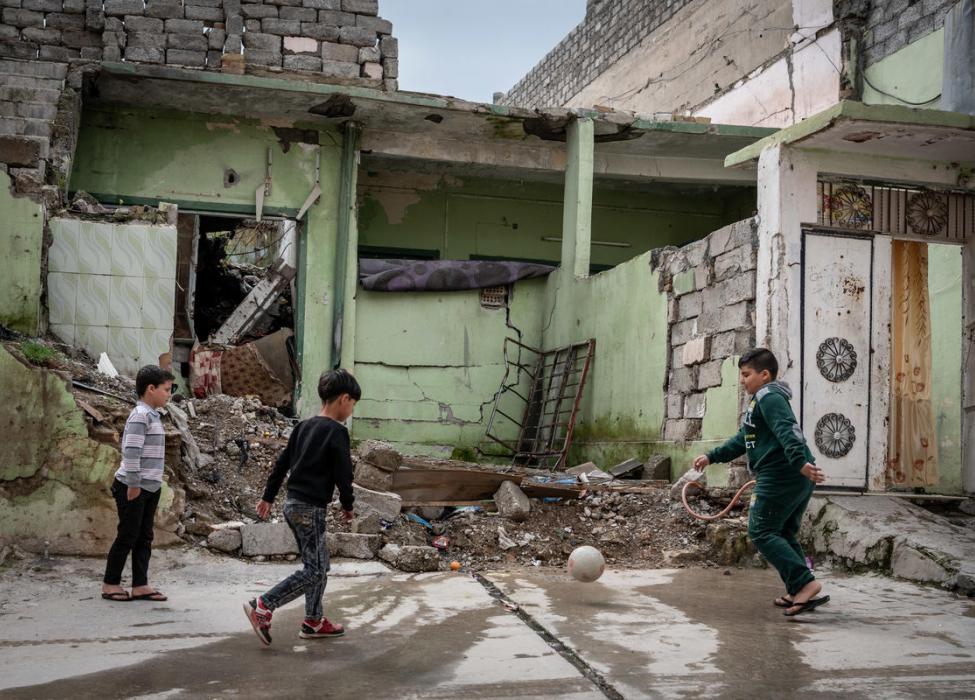
Mustafa*, 12, and his brother Samir*, 7, play football outside their home in Mosul, northern Iraq. Photo: Claire Thomas / Save the Children
New research exploring one of the most urgent challenges facing the 426 million children currently living in conflict – how to hold those committing heinous acts against children to account – is published today.
The Blavatnik School’s programme on International Peace and Security and Save the Children have published a paper which focuses on the investigation, documentation and prosecution of violations and crimes affecting children.
‘Advancing justice for children: innovations to strengthen accountability for violations and crimes affecting children in conflict’ identifies barriers which prevent perpetrators being held to account and outlines meaningful and practical strategies and solutions to overcome or mitigate those barriers.
Federica D’Alessandra, the Principal Investigator for this research and Executive Director of the Oxford Programme on International Peace and Security, said: "While preventing, monitoring and responding to violations of children’s rights in conflict have formed part of the United Nations’ international peace and security agenda for over two decades, their plight has not received comprehensive attention from all UN fact-finding and investigative bodies and international criminal courts and tribunals. As a result, there is a lack of funding, expertise and capacity to effectively – and sensitively – document, investigate and prosecute crimes affecting children in conflict. All the while, violations against children in conflict rise year-on-year".
The study takes lessons from different areas of law and draws on dozens of world-leading experts to set out how – and why – states, the UN system, civil society and NGOs and justice systems must respond. Among its recommendations, the report suggests ringfenced funding to include child-specific expertise within investigations; the development of a ‘roster’ of experts; that states require justice mechanisms prioritise children; and, that better pathways to support witnesses and children, including with their mental health and psychosocial wellbeing, are in place.
'Advancing justice for children' is part of a larger strand of research, led by Federica D’Alessandra and centred on the improvement of international investigations aimed at supporting criminal accountability for atrocity crimes, and the overall improvement of international justice.
The Programme on International Peace and Security is part of the Oxford Institute for Ethics, Law and Armed Conflict (ELAC) at the Blavatnik School of Government. Save the Children approached the programme as part of their work for the centenary year in 2019, which saw a prioritisation of policy, advocacy and programming efforts to protect children in conflict. Researchers at the International Peace and Security programme were asked to develop new insight against one of three pillars of work identified by Save the Children as part of this work: holding perpetrators of grave violations against children to account (the other two pillars being: upholding standards and norms in conflict, and taking practical action to protect children and enable their recovery).



